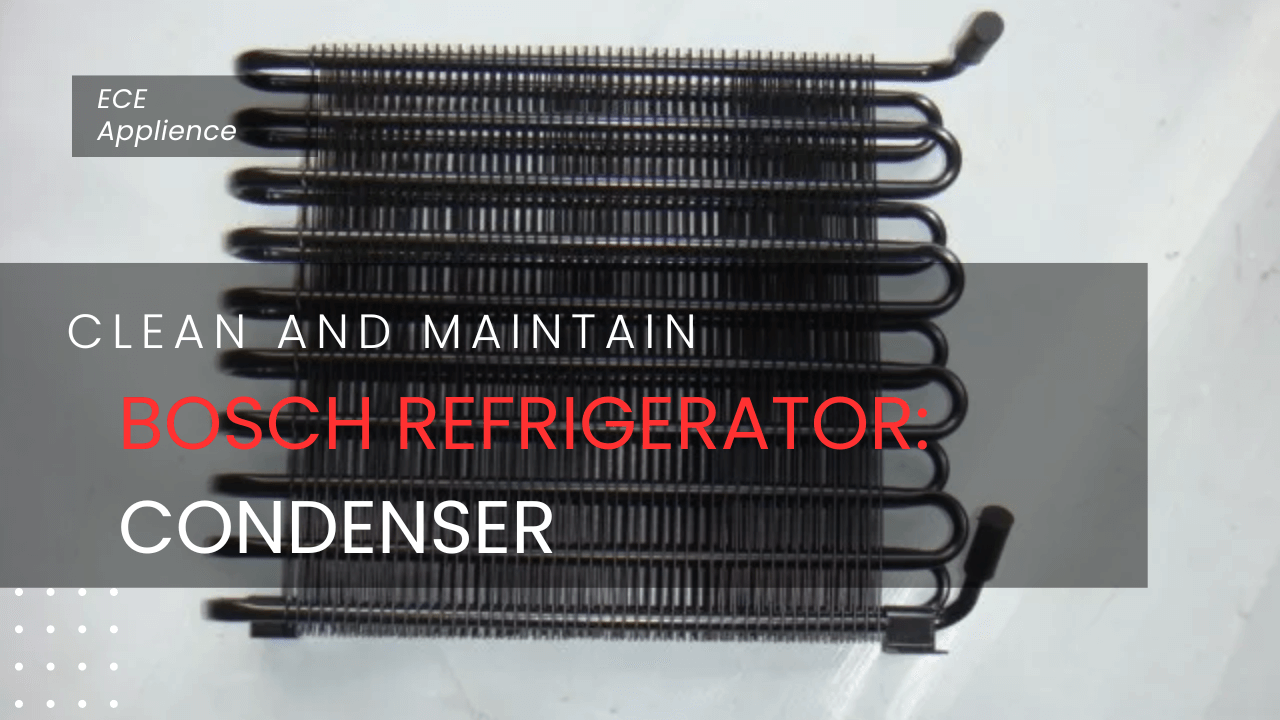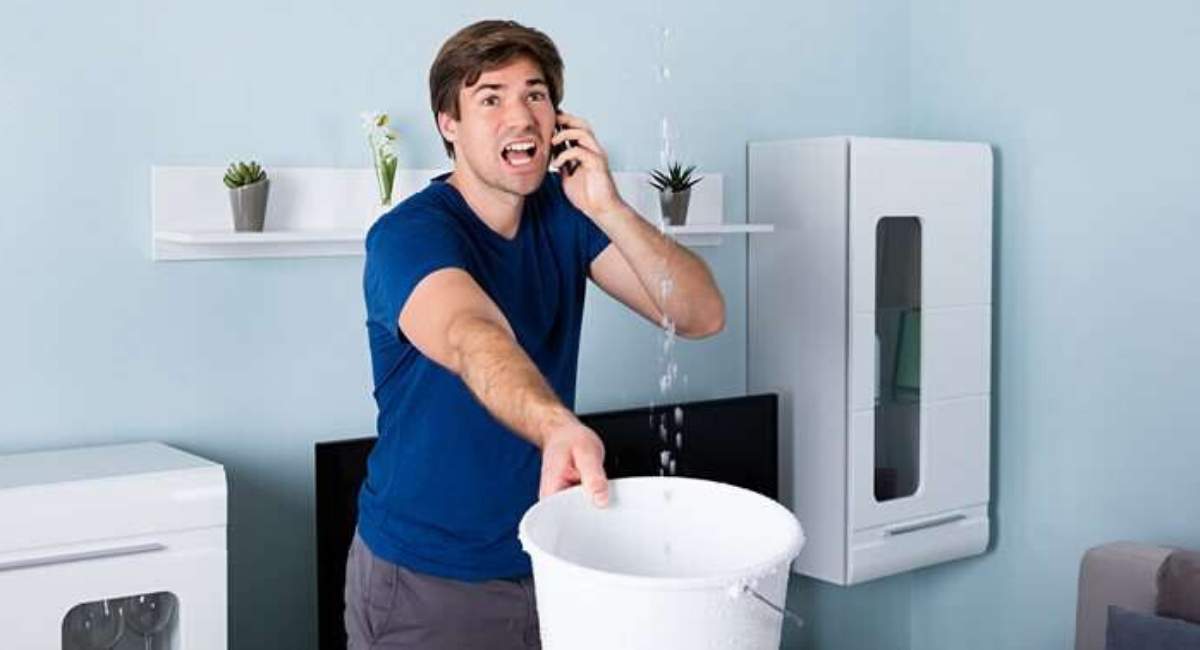How to Clean Your Bosch Refrigerator Condenser like a Technician
Refrigerators are those unsung heroes in our homes that we might take for granted—until, of course, they start acting up. Let's be real, the last thing any of us want is to find our dairy turned sour or our veggies wilted because the refrigerator couldn't maintain the right temperature.
Through my many years working with refrigerators, specifically Bosch, I've come to realize one thing: regular maintenance isn’t just a recommendation; it's a necessity. And cleaning the condenser coils? Well, that's a biggie.
Much like how you'd service your car to keep it purring smoothly, your refrigerator needs a little TLC now and then. With regular maintenance, you're not just ensuring fresh food, but you're also saving those big bucks in potential repair costs and electricity bills.
Moreover, a well-maintained refrigerator can outlive its expected lifespan, giving you more years of optimal performance. Who doesn't love an appliance that gives its 100%, year after year?
The condenser coils are like your fridge's lungs. They release heat to keep your food cold. But over time, they can get dirty with dust, pet hair, and other stuff. This makes your fridge work harder and use more energy. So clean them once a year to keep your fridge running smoothly.
Recommended frequency of cleaning based on manufacturer and technician suggestions
In my experience, and backed by the wisdom of Bosch, these condenser coils should ideally be cleaned every 6-12 months. But wait! If you have pets that shed or live in an environment where there’s more dust, you might need to do it more often. If you can, clean it every week to combat with the increased problems because of pets
It's not just about keeping the food fresh; it’s also about the energy efficiency of the fridge. Clean coils make for a happy, efficient refrigerator. It's like giving it a new lease on life every few months.
Signs of Dirty Condenser Coils
Imagine this scenario: You've just returned from the supermarket, stocked up on groceries, and your fridge is packed.
But over the next few days, you notice your fresh produce deteriorating faster, or that the milk seems a bit off. One primary culprit could be those pesky, dirty condenser coils. When they're laden with debris, the coils can't release heat efficiently.
This means your Bosch refrigerator, as robust as it is, has to work harder to keep things cool.
This extra effort isn't just bad for your food. Your fridge, in trying to keep up, consumes more electricity. It's like running a marathon while wearing a heavy backpack. Over time, this can noticeably hike up your electricity bill.
We've seen countless instances where homeowners were puzzled by their soaring power bills, only to find their refrigerator's condenser coils looking more like a fuzzy sweater than a key appliance component!
Indicators include poor performance, fluctuating temperatures, and increased energy consumption.
The initial signs might be subtle. Perhaps your ice cream is a little softer than you'd like, or the beer isn't as chilled. Over time, these small discrepancies can escalate. Fluctuating temperatures are a common indicator.
If you've ever kept a thermometer inside and noticed the temperature isn't staying consistent, it's high time to check those coils.
Increased energy consumption is another major red flag. While it might not be evident immediately, keeping an eye on your monthly electricity bills can provide insights.
A sudden, unexplained increase in energy costs, especially if your usage patterns haven't changed, is often a telltale sign.
Steps to Clean Bosch Refrigerator Condenser Coils
Preparing for the cleaning process
Alright, let's get those hands dirty (well, not literally). Before we begin, remember safety first.
1. Powering off the refrigerator as per owner's manual instructions: Your Bosch manual isn't just a booklet to be stashed away and forgotten. It provides essential safety tips. Always ensure the refrigerator is unplugged before you begin any cleaning.
2. Gathering necessary tools: You'll need a step ladder (for those hard-to-reach areas), a trusty screwdriver, a vacuum cleaner with an appliance brush attachment, and a soft, damp cloth.
The actual cleaning process
1. Accessing the condenser coils: These are typically situated at the top of the refrigerator unit. Using the step ladder, ensure you have a clear view and easy access to the coils.
2. Removing the condenser grille: It's time for that screwdriver. Carefully remove the grille to expose the coils.
3. Using a vacuum cleaner: With the appliance brush attachment, gently vacuum away the accumulated dust and debris. Move in soft, circular motions to avoid damaging the coils.
4. Wiping down the coils: Once vacuumed, use the damp cloth to give the coils a gentle wipe, ensuring they're spotless.
5. Reinstalling the condenser grille: Place the grille back and secure it using the screws. Make sure it's fixed correctly and firmly.
6. Powering the refrigerator back on: Plug it in, and allow it to run for at least a day for effective cooling. Your Bosch refrigerator should now be functioning at its optimal efficiency!
Regular maintenance recommendations
Remember, consistency is vital. Depending on your living conditions, aim to clean the coils every 6-12 months. By regularly vacuuming and ensuring all components are clean, you'll significantly prolong the lifespan of your appliance and keep those energy bills in check.
ECE Appliance Refrigeration Repair Services
If you face some problems, don’t have time to fix everything yourself, or need some help in your appliance repairs our team, ECE Appliance is operational for those based in Houston, Texas. Our expertise in handling refrigeration appliances, especially the renowned Bosch brand, makes us a go-to team of technicians.
Here at ECE Appliance, we only use genuine factory-made products. It ensures that your appliances get the best possible care without the risks associated with generic, off-brand replacements. Combine this with our team of professional technicians, and you have a recipe for reliable, long-lasting appliance maintenance.
If you're in the Houston area or its surroundings and need professional assistance, ECE Appliance Refrigeration Services is always ready to help. Call us at +1 (832) 979-8949 to learn more.
Conclusion
There's an undeniable satisfaction that comes with understanding our household appliances and giving them the care they need. Proper condenser coil cleaning isn't just about keeping your Bosch refrigerator running; it's about optimizing its performance, extending its lifespan, and, in the process, ensuring your food stays fresh and your energy bills stay low.
Drawing from years of experience, both personal and from the countless homes we've assisted, it's evident that regular maintenance, especially of the condenser coils, can save you from unexpected breakdowns and costly repairs. So, the next time you hear your fridge humming away, know that with a little care, you're ensuring it serves you efficiently for years to come.
FAQ
Q: How often should I clean the condenser coils of my Bosch refrigerator? A: Bosch typically suggests every 6-12 months. However, if you have pets or your environment is particularly dusty, you might want to do it more frequently.
Q: Can I use any vacuum cleaner to clean the coils? A: Ideally, you should use a vacuum cleaner with an appliance brush attachment. This ensures gentle cleaning without causing any damage.
Q: My fridge seems to be working fine. Should I still clean the coils? A: Absolutely! Regular maintenance ensures optimal performance and reduces the risk of potential breakdowns in the future.








